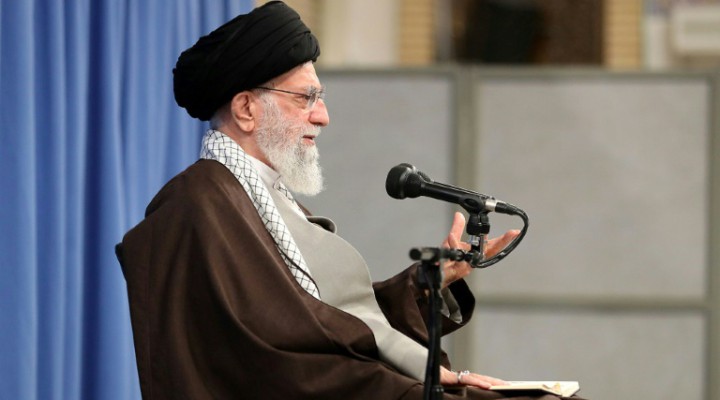When and how will Iran retaliate?

Israel is provoking an expanded regional war that it cannot win
Iranian leader Ayatollah Ali Khamenei is a man of few words. When he publicly threatens a harsh response to Israel’s attack on the Iranian consulate in Damascus — which killed seven people including senior Revolutionary Guard (IRGC) commanders — that means retaliation is impending.
The question is whether it will be immediate or postponed for few days; and, also, if it will be carried out directly by the IRGC or by its paramilitary allies in South Lebanon, Iraq, and Yemen, or both.
If there’s a war, there is no need for the element of surprise, and it may be militarily or politically unwise to defer it. The decision to retaliate was already taken by Iran’s Supreme National Security Council at an emergency meeting convened immediately after news broke of the airstrike on the consulate, according to a source close to the council. This could entail launching hundreds or thousands of missiles at Israeli targets, and even striking Israeli diplomatic missions in the Gulf region or elsewhere.
The demonstrations held by thousands of Iranians in Tehran to condemn the Israeli attack were different to previous rallies held in support of Gaza. This time, demonstrators criticised their own political leaders for their failure to respond firmly and directly to a succession of earlier Israeli assassinations and attacks, and demanded they retaliate decisively this time. Iranian leaders are bound to take account of this growing frustration with their policy of ‘strategic patience’.
Allied resistance groups are likely to play a role in this retaliation. Lebanese Hezbollah leader Hasan Nasrallah has said retaliation is certainly coming. Abu Ali al-Askari of Iraq’s Kataeb Hezbollah spoke of thousands of armed fighters prepared to cross from Jordan into occupied Palestinian to join the struggle there. As for the Yemenis, they have no need for a call-to-arms. They began their battle against Israeli-linked shipping — and then the US navy — in support of Gaza months ago.
The reference to Jordan was significant. Some weeks ago, tens of thousands of Iraqi Hashd ash-Shaabi (Popular Mobilisation) members rallied at the Iraqi-Jordanian border and chanted calls for it to be opened so they could reach Palestine and fight in defence of the West Bank and Gaza Strip.
In the event of an expanded war, US military bases in Iraq, Syria, Jordan, and the Gulf region could also be targeted. Washington had reached secret understandings with Tehran not to expand the Gaza war into a regional one. But it did not live up to its side and failed to restrain its Israeli ally. By carrying out a succession of deliberately provocative attacks against Iranian targets, and further escalating the genocidal war against civilians in Gaza, Netanyahu belittled and humiliated Biden, and demonstrated that it is he who calls the shots in the White House.
If the Iranian state join the prospective war directly alongside its Lebanese, Iraqi, and Yemeni allies, I expect that the Syrian army will do to. Shortly after the al-Aqsa Flood operation, the Iranian foreign minister visited Damascus to sound the Syrian president out about the need to join the war on all fronts in support of the Palestinian resistance. According to high-level Syrian sources, President Bashar al-Asad replied: “Syria is a state, not a front. If the Iranian state enters into this war, we will be by its side, without hesitation.”
Iran is a regional superpower with a huge arsenal of missiles, drones, and submarines. It has been a nuclear breakout state for three years and may have already manufactured nuclear weapons. If it enters a war that Israel forced on it by attacking its consulate — a blatant violation of its sovereignty — it may prove to be the region’s last war, and the beginning of the end of the Zionist occupation state in its current form.
It would probably be a rolling conflict, starting with a limited retaliation and escalating into all-out war. The occupation state has been reopening public shelters. Its settlers have been stocking up on food and cash. The military has been placed on alert, air defence reservists have been called up, and home leave for combat units cancelled. Its current leaders want a war and are preparing for one.
But it is a war it cannot win. It failed, despite the full backing of the US, to overcome the resistance fighters of the miniscule and vulnerable Gaza Strip after six months of merciless bombardment. Can it withstand a war against the Axis of Resistance led by Iran?
 TheAltWorld
TheAltWorld 
Mister Nobody
My supposition is that they are waiting until the holy month of Ramadan ends, which is April 8 (tomorrow as of this writing).